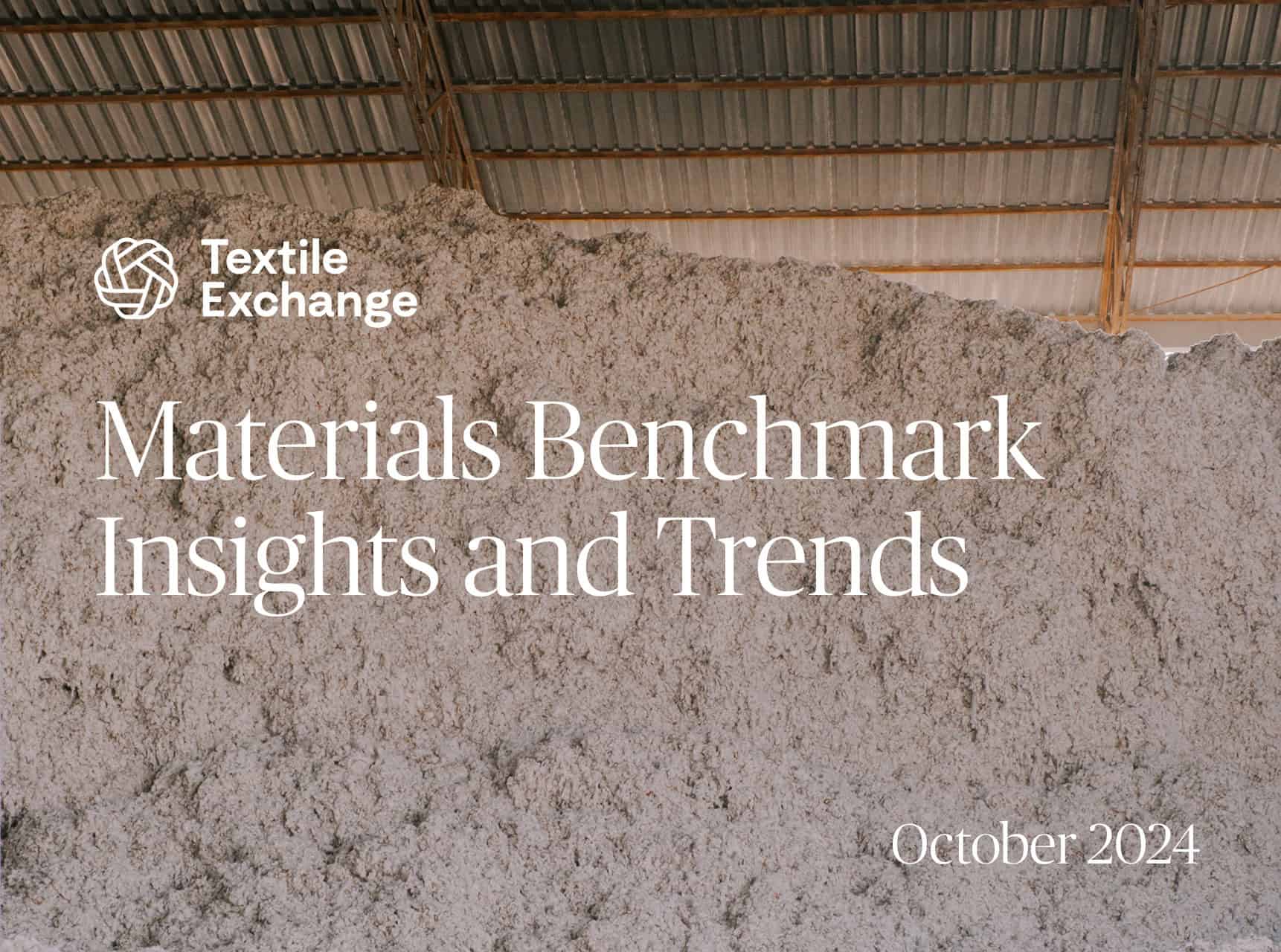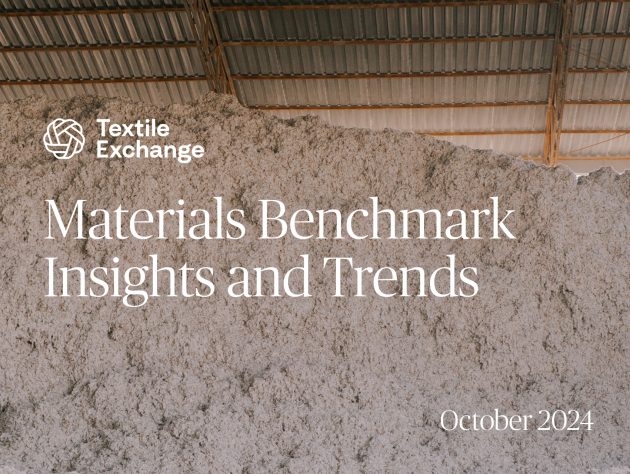Materials Benchmark Insights and Trends 2024

Discover some of the key insights and trends from Textile Exchange’s Materials Benchmark.
The Materials Benchmark is the largest peer-to-peer comparison initiative in the fashion, textile, and apparel industry. Every year, it tracks the uptake of fibers and raw materials from recognized programs, as well as how companies are addressing areas like circularity, biodiversity, land, freshwater, and forests.
To explore aggregated data and trends from participating brands and retailers, we have compiled a factsheet that provides key insights into the state of the sector.
The Materials Benchmark is open to all companies that want to measure and report their fiber and raw material-related progress. However, it is important to note that the data in this factsheet refer to companies that report into the Materials Benchmark only, which far outperform the industry as a whole in terms of their sustainability progress.
Read
Explore all of the insights
Dive deeper into how companies that reported into the 2024 Materials Benchmark cycle are addressing climate and nature through their raw material sourcing.

Discover the key takeaways
- The number of reporting brands and retailers (including subsidiaries) increased from 57 in 2015 to a record 418 in 2024.
- The share of raw materials under sustainability programs used by the reporting brands increased from 53% in 2022 to 57% in 2023.
- The share of recycled materials from textile-to-textile feedstocks remains very low. Less than 1% of all fibers used by the brands and retailers were from textile-to-textile feedstocks from post-consumer textiles in 2023.
- The total fiber and raw material usage as shared by the reporting brands decreased from around 2.3 million tonnes in 2022 to 2.1 million tonnes in 2023. The use of virgin fossil-based synthetic fibers also decreased among reporting brands.
- Brands and retailers still struggle to identify the country of origin of their raw materials. 80% of all cotton sourced by the reporting brands was from an unknown country of origin, and 75% of all polyester.
- The share of brands with formal climate targets increased from 66% in 2022 to 79% in 2023.
- The share of brands that implemented measures to reduce impacts on climate and nature during raw materials production increased from 79% in 2022 to 86% in 2023.